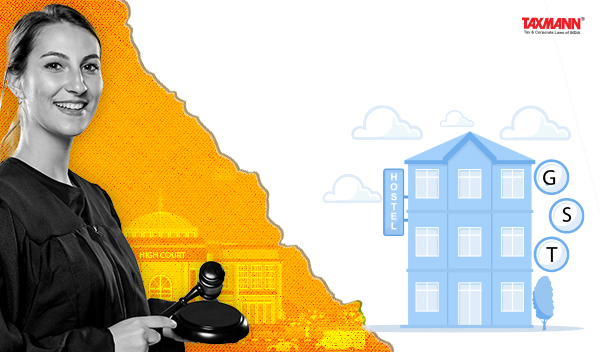[Opinion] The Verdict Under Scrutiny | The Saga of Madras High Court Decision for GST on Hostels
- Blog|News|GST & Customs|
- 2 Min Read
- By Taxmann
- |
- Last Updated on 6 May, 2024

CA Yash Shah – [2024] 162 taxmann.com 113 (Article)
The Madras High Court’s recent ruling exempting hostels from Goods and Services Tax (GST) in the case of Thai Mookambikaa ladies hostel has stirred controversy, prompting scrutiny and debate amongst the industry members. The decision, hailed by some as a win for affordable lodging, has left others skeptical, awaiting further clarity.
Amidst a legal clash over the interpretation of GST exemption clauses, hostel operators, primarily catering to female students and working women, found themselves at odds with the Tamil Nadu Authority for Advance Ruling (TN AAR). While the High Court’s ruling favored hostel operators, questions linger regarding the definitions of ‘residential dwelling’ and the distinctions between hostels and hotels.
With the Supreme Court’s potential intervention pending and the initiation of Special Leave Petitions (SLPs) looming, the fate of hostel operators and the broader hospitality sector hangs in the balance, underscoring the complexity of tax jurisprudence in the hospitality industry.
Facts
The motive: In a bustling city, the Thai Mookambikaa Ladies Hostel emerges as a haven (a place that offers safety, shelter, or favorable opportunities) for college students and working women, offering comfortable accommodations and hearty meals amidst their academic and professional pursuits.
Tariffs and Inclusivity: The hostel welcomes residents with open arms, offering very reasonable monthly rates ranging from Rs. 1200/- to Rs. 6,500/-, ensuring affordability for individuals from various budget backgrounds & even including the individuals having high aims in their life but due to some financial constraints they have been unable to pursue.
Cloud of Uncertainty: Despite the harmony within the hostel, uncertainty looms as the management finds themselves entangled in a legal saga, seeking clarity on the applicability of Goods and Services Tax (GST) exemption on accommodation charges.
Petition for Clarity: Believing in the noble nature of their enterprise, the hostel’s management approaches the Tamil Nadu State Appellate Authority for Advance Ruling, fervently arguing for GST exemption, emphasizing the essential services they provide to students and working women.
Denied Exemption: Despite passionate pleas, the Authority for Advance Ruling (AAR) and the Appellate Authority for Advance Ruling (AAAR) deny the exemption, citing intricate clauses within GST laws and deeming the petitioner ineligible.
Financial Ramifications: The denial of GST exemption places a significant burden on the hostel, adding extra taxes to accommodation charges and impacting operational costs and pricing structures, posing challenges for future endeavors.
A reminder of Complexity: The Thai Mookambikaa Ladies Hostel case serves as a poignant reminder of the complexities faced by small businesses in navigating tax laws, highlighting the resilience of the hostel amidst adversity.
Click Here To Read The Full Article
Disclaimer: The content/information published on the website is only for general information of the user and shall not be construed as legal advice. While the Taxmann has exercised reasonable efforts to ensure the veracity of information/content published, Taxmann shall be under no liability in any manner whatsoever for incorrect information, if any.

Taxmann Publications has a dedicated in-house Research & Editorial Team. This team consists of a team of Chartered Accountants, Company Secretaries, and Lawyers. This team works under the guidance and supervision of editor-in-chief Mr Rakesh Bhargava.
The Research and Editorial Team is responsible for developing reliable and accurate content for the readers. The team follows the six-sigma approach to achieve the benchmark of zero error in its publications and research platforms. The team ensures that the following publication guidelines are thoroughly followed while developing the content:
- The statutory material is obtained only from the authorized and reliable sources
- All the latest developments in the judicial and legislative fields are covered
- Prepare the analytical write-ups on current, controversial, and important issues to help the readers to understand the concept and its implications
- Every content published by Taxmann is complete, accurate and lucid
- All evidence-based statements are supported with proper reference to Section, Circular No., Notification No. or citations
- The golden rules of grammar, style and consistency are thoroughly followed
- Font and size that’s easy to read and remain consistent across all imprint and digital publications are applied



 CA | CS | CMA
CA | CS | CMA

The analysis of the Madras High Court’s decision on GST for hostels in this blog is insightful and well-articulated. It offers a clear understanding of the implications and complexities surrounding the verdict. Kudos for breaking down such a critical issue with precision and depth